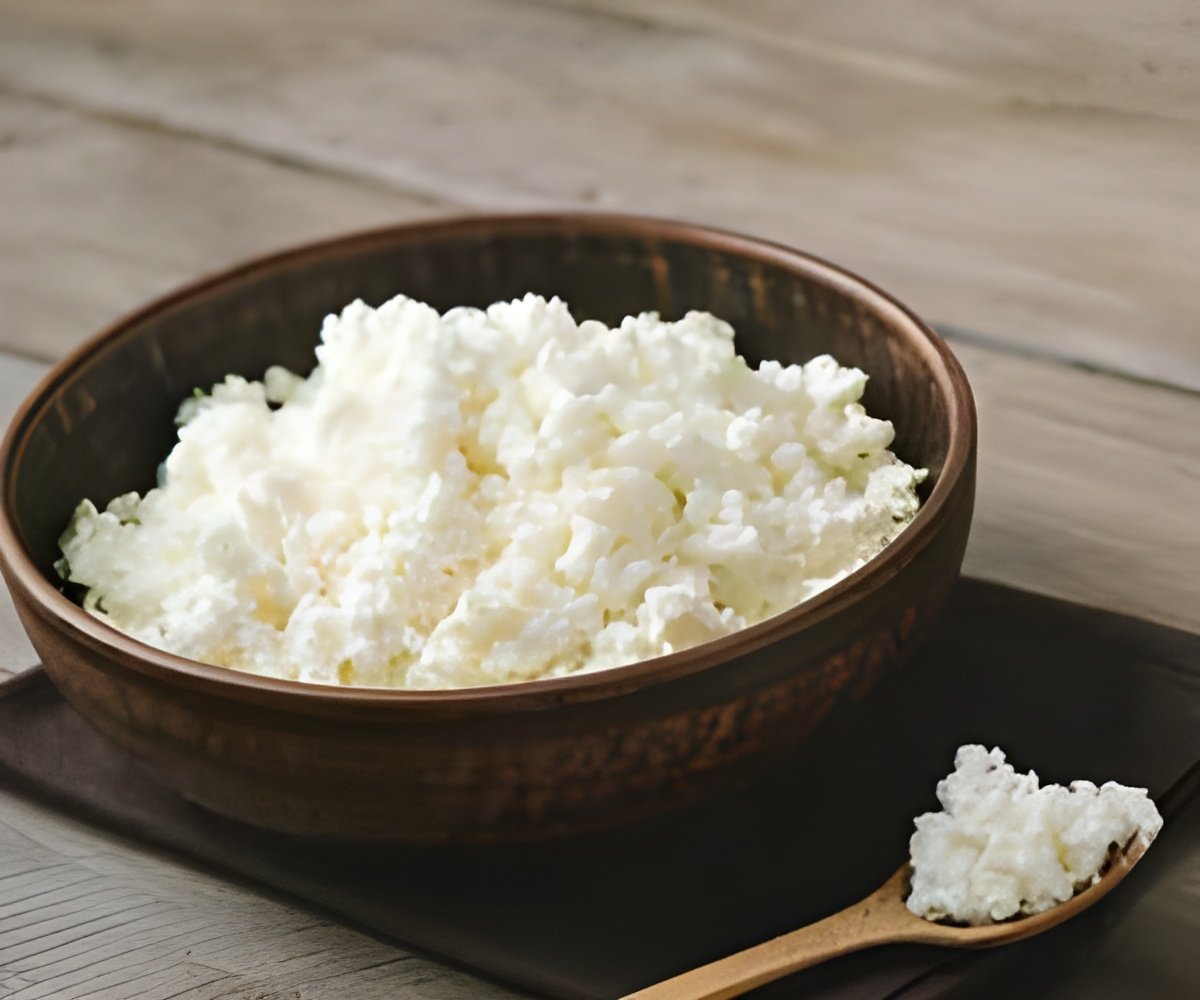Boost health with cottage cheese! Packed with protein, calcium, and probiotics, it’s perfect for weight loss, gut health, and strong bones.

- Choose low-fat or reduced-fat cottage cheese for fewer calories or full-fat for a richer taste
- Look for options with probiotics and low sodium to enhance gut health and manage salt intake
- Avoid varieties with added sugars and unnecessary thickeners for a cleaner, healthier choice
Cottage cheese remains a nutritional food product that has a lot of health benefits. Due to its rich protein content, low fat choice, and versatility, it is a good ingredient in most diets.
Advertisement
Nutritional Benefits of Cottage Cheese
Cottage cheese takes special attention as it is very calorie and protein rich; it contains 25 grams of protein in 1 cup. Pure comparisons with other sources of protein include a cup of Greek yogurt with approximately 17 grams and two eggs with12 grams. This makes cottage cheese a go to product for people who are willing to add more protein to their diets (1✔ ✔Trusted Source
Cottage Cheese Nutrition Facts and Health Benefits
).
Cottage cheese is also rich in important vitamins and minerals besides protein food product. It has riboflavin vitamin which is an energy producer and a metaboliser, it also provides potassium which is useful for nerve impulses, muscle contractions and blood pressure. In addition, cottage cheese contains lots of calcium and phosphorus, which are needed to build and maintain the bone tissue.
Advertisement
Choosing the Right Cottage Cheese
When selecting cottage cheese, there are a few factors to consider (2✔ ✔Trusted Source
Clinical Evidence and Mechanisms of High-Protein Diet-Induced Weight Loss
):
Fat Percentage: Reduced fat (1% or 2%) cottage cheese contains fewer calories and less total fat than its full- fat or regular counterparts. Nonetheless, products containing all the fats are usually creamier, and they have a better taste as well.
Curd Size: Cottage cheese has two basic types- large curd and small curd. Large curd cottage cheese has a higher degree of consistency and is sweeter than small curd cottage cheese.
Sodium Content: One of the biggest drawbacks of cottage cheese is it contains a lot of sodium, some brands have even 300mg of sodium per half cup of the product. If you are concerned with the level of sodium in your diet then it’s wise to go for low-sodium or no-salt-added.
Probiotics: Choose cottage cheese with “live and active cultures” on the label for the improvement of gut health.
Added Sugars: Cottage cheeses which are flavored especially those that contain fruits usually contain sugars which add on more calories. Avoid fancy varieties as much as possible.
Advertisement
How to Eat Cottage Cheese
Cottage cheese is incredibly versatile and can be enjoyed in various ways (3✔ ✔Trusted Source
Cheese, cottage, lowfat, 2% milkfat
):
- Spice it Up: To complement the mild taste you might use bitter spices such as black pepper, cumin, or paprika.
- Swap it for Yogurt: Eaten with the sugar-free fruit it makes a great smoothy or add the berries and have a high protein dessert.
- Power Up Your Breakfast: Add cottage cheese into your morning diet plan by whipping it together with scrambled eggs, or by using it in the place of butter and avocado on toast, or sprinkle it on pancakes.
- Lighten Up Your Lunch: Replace ordinary mayonnaise with cottage cheese in tuna, chicken, or egg salad to make dishes less dense and more nutritious.
- Make a Dip: It can be used sweet with fruit and honey or a savory dish made by mixing cottage cheese with her and green onions.
Cottage cheese is a highly nutritious food that is low in fat and saturated protein and is therefore easily integrated in the diet system. Its benefits include the better functioning of the gut, helping to reduce weight, building better bones, and more muscular strength. However, to be healthier the varieties with low added sugar, low sodium and low thickeners should be chosen. The taste of cottage cheese can also be ideal for a number of recipes whether in a savoury or sweet dish (4✔ ✔Trusted Source
Cottage Cheese
), (5✔ ✔Trusted Source
What to Look for in Cottage Cheese
).
References:
- Cottage Cheese Nutrition Facts and Health Benefits – (https://www.americandairy.com/health-wellness/benefits-of-dairy/cottage-cheese/)
- Clinical Evidence and Mechanisms of High-Protein Diet-Induced Weight Loss
– (https://www.jomes.org/journal/view.html?doi=10.7570/jomes20028) - Cheese, cottage, lowfat, 2% milkfat
– (https://fdc.nal.usda.gov/food-details/328841/nutrients) - Cottage Cheese
– (https://www.californiadairypressroom.com/Products/Cottage_Cheese#) - What to Look for in Cottage Cheese – (https://www.eatright.org/food/food-groups/dairy-and-alternatives/what-to-look-for-in-cottage-cheese)
Source-Medindia



